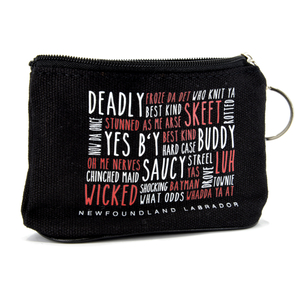By Darrell Hillier
Late in August 1939, with war clouds gathering over Europe, the German freighter Christoph Van Doornum sailed into Botwood harbour. No sooner had the vessel been loaded with ore concentrate when Newfoundland Constabulary officers placed the ship and its 25 crew under guard. This action came at the request of the British firm that had financed the purchase of the Van Doornum by its German owners. The lenders feared that, in the event of war, the loan would go unpaid. When war broke out on September 3rd, authorities formally seized the ship and detained the crew at the YMCA, located in the King George V Institute building, in downtown St. John’s. After a three-month stay at the “Y,” the detainees were transferred to hastily erected wooden barracks inside a barbwire enclosure at nearby Pleasantville.
The Pleasantville camp had its share of problems, writes historian Gerhard Bassler, with prisoners disobeying orders, “chronic dissension among the German seamen,” fighting between the Italian and the German inmates, and two breakout attempts. Perhaps the first breakout attempt occurred in October 1939, when the men were at the “Y.” The escapees, boatswain Walter Knave and oiler Ernst Munch, reported the Evening Telegram, were quickly rounded up by members of the Constabulary’s Criminal Investigation Department (CID) after learning that the Germans had overnighted in a barn in the Goulds. Sergeants Cahill and Roche spotted the pair walking towards St. John’s and detained them at the city lockup. The escape landed Munch in the penitentiary, but incarceration did not deter him from further attempts.
Almost a year to the day later, 26-year-old Munch was on the lam again, accompanied by fellow inmate Wilhelm Josting, captain of the Christoph Van Doornum. The archival record reveals details of the escapade. Munch had been awaiting the opportunity to escape when Josting approached him with a plan. The pair would make their way to Placentia and attempt to board a Spanish or Portuguese ship. Failing this, they would continue to the west side of Placentia Bay, find a dory, and row to the French islands of St. Pierre et Miquelon. (The islands were then under Vichy French government control, which was friendly with Nazi Germany. Free French forces later took over the islands and ended Vichy control.)
It happened that 33-year-old Josting had been laying the groundwork weeks before confiding in Munch. When the guards weren’t looking, Josting would cut the fence wires at the rear of the camp, a little at a time, using a pair of pliers. He also had a map of St. John’s, found among some reading material, and a supply of corned beef and biscuits. With their money, he suggested to Munch, they could buy some chocolate bars along the way. Both men spoke good, slightly accented English.
On October 14, 1940, camp lights went out at 11 p.m., as per regulations, and the men retired to their barracks. The armed guards, members of the Newfoundland Militia, stood watch from sentry boxes, working shifts of two hours in the box and four hours in the guardroom. Just after midnight, with Munch waiting by the mess-room window, Josting rounded the camp a couple of times, stopping to cut the last few wires. His presence outside the barracks did not draw suspicion as “we were never barred up for the night,” said Munch. Indeed, one guard spotted Josting, but prisoners were often out at all hours, he stated, because the toilet was located outside the barracks. The guards were always on the alert, added Munch, but this night the sentry at the rear of the camp was sitting down, reading. The two Germans made haste. Munch passed two briefcases and a couple of coats to Josting through the window and jumped out. The pair crawled through the hole in the fence, ran up the back of the camp and, when at a safe distance, put on their coats. Using their map, they walked along the darkened shores of Quidi Vidi Lake, crossed the bridge at Rennie’s River, and went west along Old Railway Road (now Empire Avenue) from King’s Bridge Road, putting as much distance between them and the camp as possible before daylight.
In the morning, Corporal Mansfield, the man in charge of the camp that night, entered the enclosure for roll call. The prisoners lined up outside their barracks, but Josting and Munch were not among them. Mansfield began inquiries and a prisoner named Knabe disclosed that the pair had escaped overnight. (Knabe blamed his internment on Josting, who had ignored orders from Germany in August 1939 that all ships return to their homeports. The two had not spoken since, and Knabe thought that Josting and Munch were conspiring against him.) Mansfield then examined the enclosure and found the hole in the fence at the rear of the camp. The search was on.
The chief of police immediately issued a circular to local media, describing the escapees and asking the public for information. Authorities suspected that Josting and Munch had travelling companions: two small water dogs and one small white dog. Internees were often at the fence feeding stray dogs, said one guard. Meanwhile, the two Germans continued along the old rail track to where it crossed Topsail Road. From there, they picked up the power line, intent on reaching Seal Cove, and then on to Placentia. On the evening of the 15th, they took refuge in a shack.
Members of the constabulary’s mounted division were busily scouring the city and environs, and canvassing for witnesses. A break came on the 16th when a man checking his rabbit snares reported spotting someone in the window of an empty shack on the Seal Cove power line, two miles from the community of Topsail. Sergeant Cahill and three constables approached the shack, where they saw the outline of a person through the window. With the constables positioned outside, Cahill entered the shack and detained Josting and Munch (and one dog) without incident. The men had the stove lit and “had just finished a cup of tea” when Cahill burst through the door, reported the Evening Telegram.
When interviewed in custody by Cahill, Munch said he simply wanted to get home to Germany. Josting, on the other hand, blamed camp conditions, claiming there was insufficient room in the dining area for all the internees and “that the guards get better food than we.” In any event, there would soon be no further escapes from the Pleasantville camp. The United States had leased the land to build an army base. The camp was closed and its detainees relocated to internment camps in Canada.











